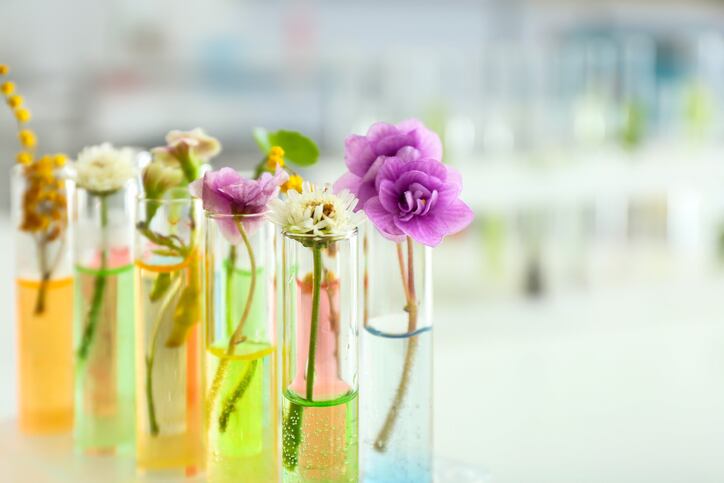In line with preliminary results released in January, international skin care major Beiersdorf posted sales of €7.65m for 2019 across the entire group, up 5.8% on the previous year, and sales of €6.27bn under its consumer business segment, up 6.5%. Nivea, La Prairie and Eucerin were cited as key growth drivers across this portfolio.
Addressing investors in its annual earnings call, Stefan De Loecker, chairman of the executive board of Beiersdorf, said: “I basically have one message: we delivered what we promised a year ago.”
Beiersdorf had outperformed the market, De Loecker said, and maintained or gained market share in almost two-thirds of the markets it was active in.
Sustainability spotlight – tackling ‘one of the greatest challenges of our time’
De Loecker said Beiersdorf had been especially focused on sustainability during 2019 – especially important given today’s landscape. “Climate change is one of the greatest challenges of our time,” he said, but Beiersdorf had clear commitments and an action plan in place to address this.
Its signing of the business ambition for 1.5 degrees Celsius at the United Nations Climate Conference in Madrid last year saw the company pledge to reduce emissions by 30% across its entire value chain by 2025 and make production operations climate-neutral by 2030. It had also pledged to use recyclable, compostable or reasonable packaging by 2025 and increase use of recycled material in its plastics across Europe to 25%. The Nivea Shower ‘fresh plants’ range was already made using 100% recycled plastic and by the end of this year, the goal was for 90% of all PET bottles in Europe to be made of recycled plastic. De Loecker said the company would also exclusively use biodegradeable polymers across all of European products by 2025, starting with making Nivea products microplastic-free by 2021 and Eucerin microplastic-free by 2023.
He said Beiersdorf’s CARE+ strategy launched in 2019 – a concept to develop business with ‘courage, aspiration, responsibility and empathy’ – would contribute towards wider sustainable efforts. The company’s goal to meet 100% of its palm oil needs with sustainably certified palm oil, for example, was on track for the end of 2020 and it had also added shea butter to its commitment of sustainably cultivated raw materials. “Conscious, economical use of water” was another focal point for Beiersdorf moving forward, with the aim of reducing water consumption across operations by 25% by 2025.
Beauty consumers expecting ‘more naturalness and sustainability’
De Loecker said there were “profound changes in society, industry and company” taking place, especially around consumer expectations on digitalisation, demographic developments and climate change, all of which presented “new challenges” to business.
“…The lifestyles and expectations of our consumers are changing. People expect more naturalness and sustainability.”
This had driven Beiersdorf to expand portfolios to include products with more natural ingredients, De Loecker said. In 2019, for example, the company entered the European natural cosmetics market with two different concepts: Nivea Naturally Good, made using 95% natural ingredients, and Florena Fermented Skincare.
Beiersdorf’s acquisition of Hamburg-based natural cosmetics line ‘Stop The Water While Using Me!’ would also be continued as an independent company that aimed to “expand the impact of sustainable skin care and develop initiatives to protect the climate and resources”.
Under the CARE+ strategy, De Loecker said Beiersdorf was also focused on increasing its relevance among consumers. “Our goal is to be as close as possible to each individual consumer along their individual consumer journey, along all the points of contact we have with them.”
Face care strong – targeting ‘specific consumer needs’
This had already proved effective in driving traction within Europe’s face care category, he said, where net sales were up 6.2% in 2019 in this segment, largely due to addressing “specific consumer needs”.
Beiersdorf’s Nivea Cellular anti-ageing range, for example, reduced the appearance of age spots on mature skin and provided intensive moisture; the Nivea Cellular 3in1 care cushion contributed to a radiant appearance; and Eucerin’s Anti-Pigment range targeted hyperpigmentation – an issue for 50% of women worldwide. This last product, he said, had become the “most successful product launch in the history of Eucerin”, breaking all records.
“…The foundation of our success is the close relationship that we maintain with people and our understanding of their wishes and needs around the world.”
De Loecker said it would take “even more determination” to implement Beiersdorf’s CARE+ strategy in 2020 – a year that would be “shaped by strong headwinds”.
“We at Beiersdorf are ready for them. From its very beginning, our company has always been guided by long-term thinking and actions. A year ago, I said that everything will turn out to be a major success immediately. We are prepared for that.”



